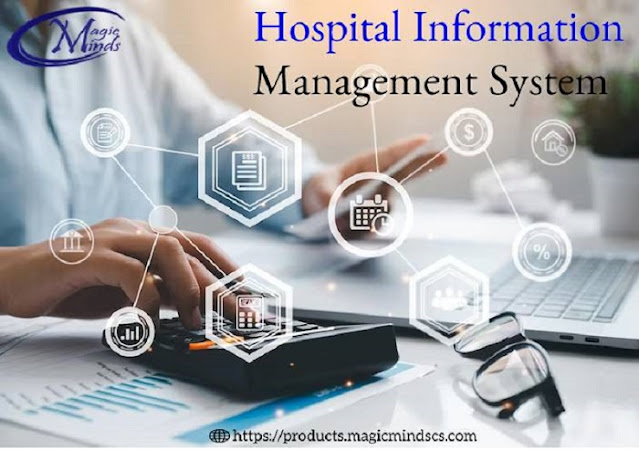WHY YOU NEED A HOSPITAL INFORMATION SYSTEM (HIS)
In today's fast-paced healthcare environment, hospitals and healthcare facilities need efficient and effective tools to manage their operations, streamline their processes, and improve patient care. One crucial tool that has become essential for modern hospitals is a Hospital InformationSystem (HIS). In this blog, we will explore why hospitals need an HIS, how it can benefit them, and why investing in a hospital management system is a wise decision.
As the healthcare industry evolves, hospitals face increasing challenges in managing their day-to-day operations. They need to handle patient information, appointments, billing, inventory management, and more, all while ensuring compliance with complex regulations and maintaining high standards of patient care. Traditional manual methods of managing hospital operations are labor-intensive, time-consuming, and error-prone, leading to inefficiencies and increased risk of errors.
This is where a Hospital Information System (HIS) comes into play. An HIS is a comprehensive software solution that integrates and automates various hospital processes, including patient management, clinical workflows, financial management, inventory management, and more. It is also known as a Hospital Information Management System (HIMS) or Hospital ERP system, and it has become an essential tool for modern hospitals to effectively manage their operations and provide quality care to patients.
Let's delve deeper into why
hospitals need an HIS and the benefits it can provide:
Enhanced Patient Management: Patient management is a critical aspect of hospital operations. An HIS allows hospitals to efficiently manage patient registration, appointments, admissions, discharges, and transfers. It enables seamless communication among hospital departments and caregivers, ensuring that patients receive timely and appropriate care. An HIS also enables electronic health records (EHRs) management, which eliminates the need for paper-based records and allows for easy access to patient information, leading to improved patient safety and care.
Streamlined Clinical Workflows: Clinical workflows involve various activities such as patient assessments, diagnosis, treatment planning, medication management, and more. An HIS automates these workflows, reducing manual errors, streamlining processes, and improving patient outcomes. It facilitates seamless communication among healthcare providers, ensuring that they have access to up-to-date patient information, test results, and treatment plans. This results in faster decision-making and better coordination among caregivers, leading to improved patient care.
Efficient Financial Management: Managing the financial aspects of a hospital can be complex and challenging. An HIS automates financial management processes, including patient billing, insurance claims, revenue cycle management, and financial reporting. It helps hospitals in accurate billing and reduces errors, ensuring that hospitals receive timely payments for services rendered. It also provides insights into the financial health of the hospital, helping in strategic decision-making and financial planning.
Effective Inventory Management: Hospitals need to manage their inventory of medicines, medical supplies, and equipment efficiently. An HIS helps hospitals in tracking inventory levels, streamlining procurement processes, and reducing stockouts and wastage. It also ensures that hospitals have the right supplies at the right time, improving patient care and reducing costs associated with stockouts or overstocking.
Improved Compliance and Reporting: Compliance with regulatory requirements is crucial for hospitals to avoid legal and financial penalties. An HIS helps hospitals in managing compliance with various regulations such as HIPAA, GDPR, and other industry-specific regulations. It automates compliance processes, including data privacy and security, ensuring that patient information is protected. It also generates reports required for regulatory compliance and audits, saving time and effort in manual report generation.
Enhanced Decision-making: Data-driven decision-making is critical for effective hospital management. An HIS provides real-time access to accurate and comprehensive data, enabling hospitals to make informed decisions. It generates reports and analytics on various aspects of hospital operations, including patient outcomes, resource utilization, financial performance, and more. These insights help hospital administrators in identifying areas that need improvement.

.jpg)

Comments
Post a Comment